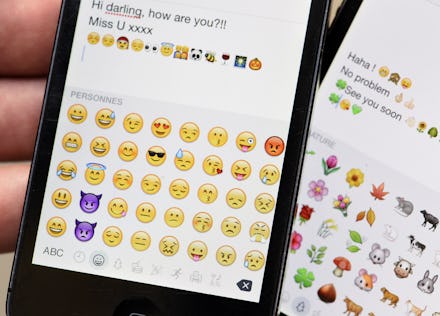People who use emojis are nicer, according to this new study :-)

That extra winky face might mean more than you think.
In a forum paper published in Trends in Cognitive Sciences, psychologists Linda Kaye, Stephanie Malone and Helen Wall discuss the role of emojis and how people use them. One interesting topic they addressed — based on a 2016 study — was the idea that those who use more emojis are perceived to be friendlier.
"If you look at personality traits, like agreeableness, how amenable you are to other people, it seems to be related to whether you use emojis or not," Kaye, a cyberpsychologist at Edge Hill University in the U.K., said in a statement.
Kaye and her team found that people who were more liberal in their use of emojis were more empathetic, socially receptive and, in turn, more approachable.
"It says something about how we're understanding each other and how we're likely to interact with people," Kaye told CNN.
Kaye likens the use of emojis to that of facial expressions and gestures — similar to how they can add emotional context to expressions, emojis can add emotional data to words.
"We mostly use emojis like gestures, as a way of enhancing emotional expressions," Kaye said. "There are a lot of idiosyncrasies in how we gesture, and emojis are similar to that, especially because of the discrepancies as to how and why we use them."
Knowing how emojis are perceived — and how they make an individual appear — can be valuable information. By understanding the role of emojis, or how those who use emoticons are thought to be nicer, people can be more aware of how they're viewed while engaging in nonverbal communication.
"People are making judgments about us based on how we use emojis, and they're not necessarily accurate," Kaye said. "What we need to be aware of is that those judgments might differ depending on where or with whom you're using those emojis, such as in the workplace or between family members."